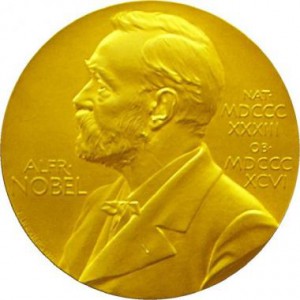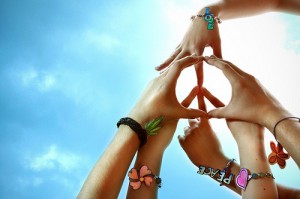It is time to focus on the Nobel Peace Prize awards and to explain who received the prize and why. Have fun reading!

The 2011 Nobel Peace Prize was jointly awarded to three women for their struggle for women’s safety and women’s full participation in peace-building work, the Norwegian Nobel Prize Committee said.
Liberian President Ellen Johnson Sirleaf, women’s activist Leymah Gbowee of Liberia and Tawakkul Karman of Yemen each share the prize. The three women will be given an equal share of the $1.5 million that accompanies the peace prize.
So what is this so-called Nobel Peace Prize? The peace prize is awarded by a five-person committee that is selected by the Norwegian Parliament; the other Nobel prizes are awarded in Sweden by a Swedish committee. The peace prize is one of the five Nobel prizes bequeathed by Alfred Nobel, a Swedish industrialist and inventor. The Nobel Peace Prize has been awarded 91 times to 121 Nobel Laureates between 1901 and 2010 — 98 individuals and 23 organizations. President Obama was awarded the 2009 Nobel Peace Prize for his work in expanding global arms control and nuclear nonproliferation, and for forging an agenda aimed at achieving a nuclear-free world.
The prize committee said in a prepared statement that it “decided that the Nobel Peace Prize for 2011 is to be divided in three equal parts between Ellen Johnson Sirleaf, Leymah Gbowee and Tawakkul Karman for their non-violent struggle for the safety of women and for women’s rights to full participation in peace-building work.”
I personally believe that we cannot achieve democracy and lasting peace in the world unless women obtain the same opportunities as men to influence developments at all levels of society.
The US Secretary of State Hillary Rodham Clinton praised the Nobel Committee for recognizing “the powerful role women are playing in building peace and ending conflict.”
“I am delighted to send heartfelt congratulations to Liberian President Ellen Johnson Sirleaf, Yemeni activist Tawakkul Karman and Liberian peace activist Leymah Roberta Gbowee for the prestigious honor of sharing this year’s Nobel Peace Prize,” Clinton said in a prepared statement.
Really, they are shining examples of the difference that women can make and the progress they can help achieve when given the opportunity to make decisions about the future of their societies and countries.
Why is this year’s Peace Prize is so important for the international community in general? The unflinching courage, strength and leadership of these women to build peace, advance reconciliation, and defend the rights of fellow citizens in their own countries provide inspiration for women’s rights and human progress everywhere. This recognition of their extraordinary accomplishments reflects the efforts of many other women who are promoting peace and security in their countries and communities.
In October 2000, the U.N. Security Council adopted Resolution 1325 that for the first time made violence against women in armed conflict an international security issue, according to the prize committee. It underlined the need for women to become participants on equal status with men in peace processes and in peace work in general.

During last 2-3 days I have got a lot remarks and question around Europe concerning this awards and in order to avoid any misinterpretation let’s just consider their examples one by one and you will see that the selection has been done correctly.
1) Ellen Johnson Sirleaf is Africa’s first democratically elected female president. Since her inauguration in 2006, she has contributed to securing peace in Liberia, to promoting economic and social development, and to strengthening the position of women.
2) Leymah Gbowee, who is also from Liberia, mobilized and organized women across ethnic and religious dividing lines to bring an end to the long war in Liberia, and to ensure women’s participation in elections. She has since worked to enhance the influence of women in West Africa during and after war.
3) Tawakkul Karman has played a leading part in the struggle for women’s rights and for democracy and peace in Yemen.
This leaves just one more thing to add: the positive responsibility of each state is to guarantee gender equality in society, but I simultaneously believe that it is also up to each of us to guarantee that equality in our societies.
written by Armenak Minasyants, IPWG

